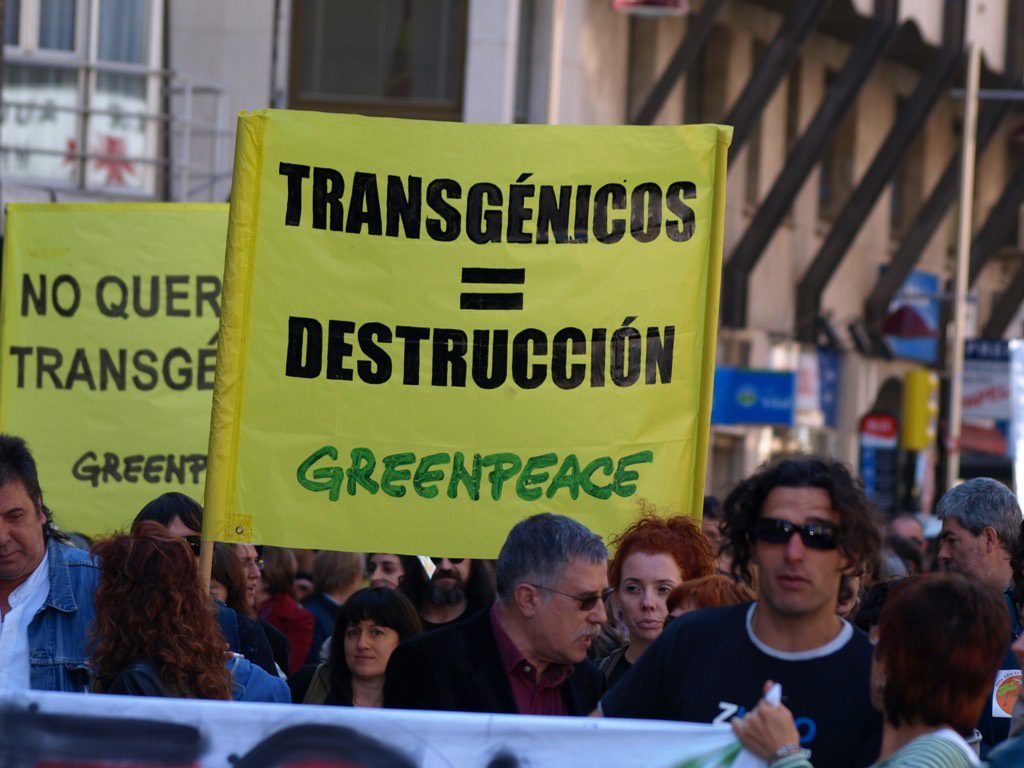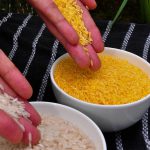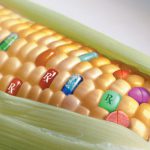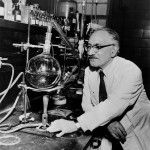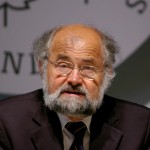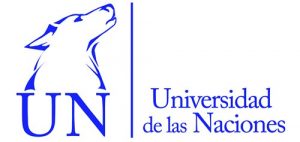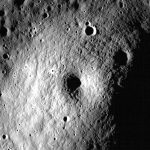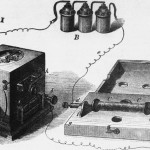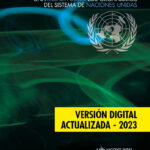Una carta dirigida a los líderes de Greenpeace, las Naciones Unidas y a los mandatarios de todo el planeta, firmada por 110 premios nobel en los campos de la física, la química, la economía y la medicina, hace un llamamiento para que se ponga fin a las campañas contra los transgénicos, y en particular contra el arroz dorado. Este alimento fue creado para evitar la ceguera infantil y el texto enfatiza el potencial que tiene «de reducir o eliminar gran parte de la muerte y la enfermedad causada por una deficiencia de vitamina A”, cuyo mayor impacto se centra en las personas más pobres de África y el Sudeste Asiático.
“¿Cuántas personas pobres en el mundo deben morir antes de considerar esto un crimen contra la humanidad?”, concluye la carta
“Instamos a Greenpeace y sus seguidores a volver a examinar la experiencia de los agricultores y los consumidores en todo el mundo con cultivos y alimentos mejorados mediante la biotecnología, para que reconozcan las conclusiones de los organismos científicos competentes y los organismos reguladores, y abandonen su campaña contra los organismos modificados genéticamente en general, y el arroz dorado en especial”, apunta el texto.
La Organización Mundial de la Salud estima que 250 millones de personas sufren carencia de esta vitamina, de los cuales un 40% son niños menores de cinco años de los países en desarrollo.
“Hay que hacer todo lo posible para oponerse a las acciones de Greenpeace y acelerar el acceso de los agricultores a todas las herramientas de la biología moderna, especialmente a las semillas mejoradas a través de la biotecnología. La oposición basada en la emoción y el dogma, en contradicción con los datos, debe pararse. ¿Cuántas personas pobres en el mundo deben morir antes de considerar esto un crimen contra la humanidad», concluía la carta.
"El arroz dorado ha fallado como una solución y no está actualmente disponible para la venta", argumenta Wilhelmina Pelegrina
El Programa de Alimentación y Agricultura de las Naciones Unidas asegura que la producción mundial de alimentos, piensos y fibra deberá duplicarse en 2050 para satisfacer las demandas del aumento de la población mundial.
Reacción de Greenpeace ante las acusaciones
La organización ecologista ha respondido a esta petición asegurando que el arroz dorado “ni siquiera existe”. «El arroz dorado ha fallado como una solución y no está actualmente disponible para la venta, incluso después de más de 20 años de investigación”, dice en un comunicado de Greenpeace Wilhelmina Pelegrina, responsable de agricultura del Sudeste de Asia.
La activista añade: “Este costoso experimento no ha logrado producir resultados en los últimos 20 años además y ha desviado la atención de métodos que sí funcionan. En lugar de invertir en este ejercicio sobrevaluado de relaciones públicas, tenemos que hacer frente a la desnutrición a través de una dieta más diversa, el acceso equitativo a la alimentación y la agricultura ecológica”.
El texto de la carta (en inglés) y los firmantes
To the Leaders of Greenpeace, the United Nations and Governments around the world
The United Nations Food & Agriculture Program has noted that global production of food, feed and fiber will need approximately to double by 2050 to meet the demands of a growing global population. Organizations opposed to modern plant breeding, with Greenpeace at their lead, have repeatedly denied these facts and opposed biotechnological innovations in agriculture. They have misrepresented their risks, benefits, and impacts, and supported the criminal destruction of approved field trials and research projects.
We urge Greenpeace and its supporters to re-examine the experience of farmers and consumers worldwide with crops and foods improved through biotechnology, recognize the findings of authoritative scientific bodies and regulatory agencies, and abandon their campaign against «GMOs» in general and Golden Rice in particular.
Scientific and regulatory agencies around the world have repeatedly and consistently found crops and foods improved through biotechnology to be as safe as, if not safer than those derived from any other method of production. There has never been a single confirmed case of a negative health outcome for humans or animals from their consumption. Their environmental impacts have been shown repeatedly to be less damaging to the environment, and a boon to global biodiversity.
Greenpeace has spearheaded opposition to Golden Rice, which has the potential to reduce or eliminate much of the death and disease caused by a vitamin A deficiency (VAD), which has the greatest impact on the poorest people in Africa and Southeast Asia.
The World Health Organization estimates that 250 million people, suffer from VAD, including 40 percent of the children under five in the developing world. Based on UNICEF statistics, a total of one to two million preventable deaths occur annually as a result of VAD, because it compromises the immune system, putting babies and children at great risk. VAD itself is the leading cause of childhood blindness globally affecting 250,000 – 500,000 children each year. Half die within 12 months of losing their eyesight.
WE CALL UPON GREENPEACE to cease and desist in its campaign against Golden Rice specifically, and crops and foods improved through biotechnology in general;
WE CALL UPON GOVERNMENTS OF THE WORLD to reject Greenpeace’s campaign against Golden Rice specifically, and crops and foods improved through biotechnology in general; and to do everything in their power to oppose Greenpeace’s actions and accelerate the access of farmers to all the tools of modern biology, especially seeds improved through biotechnology. Opposition based on emotion and dogma contradicted by data must be stopped.
How many poor people in the world must die before we consider this a «crime against humanity»?
Sincerely,
| Zhores I. Alferov | 2000 | Physics |
| Sidney Altman | 1989 | Chemistry |
| Hiroshi Amano | 2014 | Physics |
| Werner Arber | 1978 | Medicine |
| Richard Axel | 2004 | Medicine |
| David Baltimore | 1975 | Medicine |
| Paul Berg | 1980 | Chemistry |
| Bruce A. Beutler | 2011 | Medicine |
| Elizabeth H. Blackburn | 2009 | Medicine |
| Gunter Blobel | 1999 | Medicine |
| Paul D. Boyer | 1997 | Chemistry |
| Sydney Brenner | 2002 | Medicine |
| Mario R. Capecchi | 2007 | Medicine |
| Thomas R. Cech | 1989 | Chemistry |
| Martin Chalfie | 2008 | Chemistry |
| Steven Chu | 1997 | Physics |
| Aaron Ciechanover | 2004 | Chemistry |
| Claude Cohen-Tannoudji | 1997 | Physics |
| Leon N. Cooper | 1972 | Physics |
| Elias James Corey | 1990 | Chemistry |
| Robert F. Curl Jr. | 1996 | Chemistry |
| Johann Deisenhofer | 1988 | Chemistry |
| Peter C. Doherty | 1996 | Medicine |
| Richard R. Ernst | 1991 | Chemistry |
| Sir Martin J. Evans | 2007 | Medicine |
| Eugene F. Fama | 2013 | Economics |
| Edmond H. Fischer | 1992 | Medicine |
| Jerome I. Friedman | 1990 | Physics |
| Andre Geim | 2010 | Physics |
| Ivar Giaever | 1973 | Physics |
| Walter Gilbert | 1980 | Chemistry |
| Alfred G. Gilman | 1994 | Medicine |
| Sheldon Glashow | 1979 | Physics |
| Roy J. Glauber | 2005 | Physics |
| Joseph L. Goldstein | 1985 | Medicine |
| David J. Gross | 2004 | Physics |
| Roger Guillemin | 1977 | Medicine |
| Sir John B. Gurdon | 2012 | Medicine |
| John L. Hall | 2005 | Physics |
| Lars Peter Hansen | 2013 | Economics |
| Serge Haroche | 2012 | Physics |
| Leland H. Hartwell | 2001 | Medicine |
| Harald zur Hausen | 2008 | Medicine |
| James J. Heckman | 2000 | Economics |
| Dudley R. Herschbach | 1986 | Chemistry |
| Avram Hershko | 2004 | Chemistry |
| Gerardus ‘t Hooft | 1999 | Physics |
| H. Robert Horvitz | 2002 | Medicine |
| Robert Huber | 1988 | Chemistry |
| Tim Hunt | 2001 | Medicine |
| Louis J. Ignarro | 1998 | Medicine |
| Elfriede Jelinek | 2004 | Literature |
| Daniel Kahneman | 2002 | Economics |
| Eric R. Kandel | 2000 | Medicine |
| Wolfgang Ketterle | 2001 | Physics |
| Aaron Klug | 1982 | Chemistry |
| Brian K. Kobilka | 2012 | Chemistry |
| Roger D. Kornberg | 2006 | Chemistry |
| Herbert Kroemer | 2000 | Physics |
| Finn E. Kydland | 2004 | Economics |
| Leon M. Lederman | 1988 | Physics |
| Yuan T. Lee | 1986 | Chemistry |
| Robert J. Lefkowitz | 2012 | Chemistry |
| Anthony J. Leggett | 2003 | Physics |
| Jean-Marie Lehn | 1987 | Chemistry |
| Michael Levitt | 2013 | Chemistry |
| Tomas Lindahl | 2015 | Chemistry |
| Rudolph A. Marcus | 1992 | Chemistry |
| Barry J. Marshall | 2005 | Medicine |
| Eric S. Maskin | 2007 | Economics |
| John C. Mather | 2006 | Physics |
| Craig C. Mello | 2006 | Medicine |
| Robert C. Merton | 1997 | Economics |
| Hartmut Michel | 1988 | Chemistry |
| James A. Mirrlees | 1996 | Economics |
| Paul L. Modrich | 2015 | Chemistry |
| William E. Moerner | 2014 | Chemistry |
| Mario J. Molina | 1995 | Chemistry |
| Edvard Moser | 2014 | Medicine |
| May-Britt Moser | 2014 | Medicine |
| Kary B. Mullis | 1993 | Chemistry |
| Ferid Murad | 1998 | Medicine |
| Erwin Neher | 1991 | Medicine |
| Ryoji Noyori | 2001 | Chemistry |
| Sir Paul Nurse | 2001 | Medicine |
| Christiane Nusslein-Volhard | 1995 | Medicine |
| Arno Penzias | 1978 | Physics |
| Stanley B. Prusiner | 1997 | Medicine |
| Jose Ramos-Horta | 1996 | Peace |
| Sir Richard J. Roberts | 1993 | Medicine |
| Bert Sakmann | 1991 | Medicine |
| Bengt I. Samuelsson | 1982 | Medicine |
| Randy W. Schekman | 2013 | Medicine |
| Brian P. Schmidt | 2011 | Physics |
| Richard R. Schrock | 2005 | Chemistry |
| Phillip A. Sharp | 1993 | Medicine |
| Hamilton O. Smith | 1978 | Medicine |
| Oliver Smithies | 2007 | Medicine |
| Thomas A. Steitz | 2009 | Chemistry |
| Joseph H. Taylor Jr. | 1993 | Physics |
| Daniel C. Tsui | 1998 | Physics |
| Harold E. Varmus | 1989 | Medicine |
| Sir John E. Walker | 1997 | Chemistry |
| J. Robin Warren | 2005 | Medicine |
| Arieh Warshel | 2013 | Chemistry |
| James Watson | 1962 | Medicine |
| Eric F. Wieschaus | 1995 | Medicine |
| Frank Wilczek | 2004 | Physics |
| Robert Woodrow Wilson | 1978 | Physics |
| Ada E. Yonath | 2009 | Chemistry |
La respuesta de Greenpeace
Nobel laureates sign letter on Greenpeace ‘Golden’ rice position – statement
“Accusations that anyone is blocking genetically engineered ‘Golden’ rice are false. ‘Golden’ rice has failed as a solution and isn’t currently available for sale, even after more than 20 years of research. As admitted by the International Rice Research Institute, it has not been proven to actually address Vitamin A Deficiency. So to be clear, we are talking about something that doesn’t even exist.
“Corporations are overhyping ‘Golden’ rice to pave the way for global approval of other more profitable genetically engineered crops. This costly experiment has failed to produce results for the last 20 years and diverted attention from methods that already work. Rather than invest in this overpriced public relations exercise, we need to address malnutrition through a more diverse diet, equitable access to food and eco-agriculture.”
On alternative solutions:
“The only guaranteed solution to fix malnutrition is a diverse healthy diet. Providing people with real food based on ecological agriculture not only addresses malnutrition, but is also a scaleable solution to adapt to climate change.
«We’ve documented communities across the Philippines that continue to express concerns about using GE ‘Golden’ rice as a solution. It is irresponsible to impose GE ‘Golden’ rice as a quick remedy to people on the frontlines and who do not welcome it, particularly when there are safe and effective options already available.

